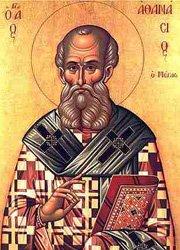
© Photo: www.pravoslavieto.com
The Borisova Garden in the heart of Sofia will once again become the stage for the Surva mummers' festival traditionally held in the town of Pernik. For the third consecutive year, Sofia residents and guests of the capital will be able to enjoy the..
Moving to Bessarabia more than two centuries ago, some Bulgarians brought with them part of their rich rituals. In their new homeland, some customs became modified under the influence of local traditions, others disappeared, and still others have been..
The first day of January is a day filled with emotions and joyful anticipation of a prosperous year in which all family members will be healthy and will make all their dreams come true. In the traditional Bulgarian calendar, 1 January is known as..
The Borisova Garden in the heart of Sofia will once again become the stage for the Surva mummers' festival traditionally held in the town of Pernik...

+359 2 9336 661
